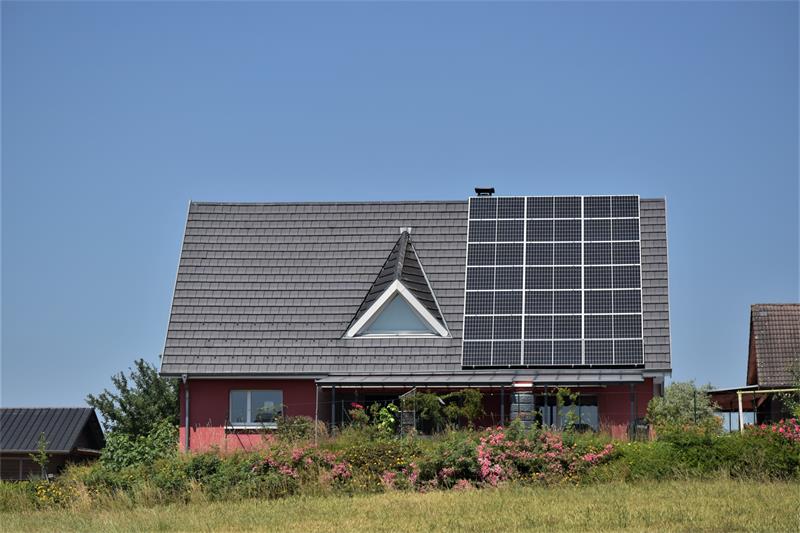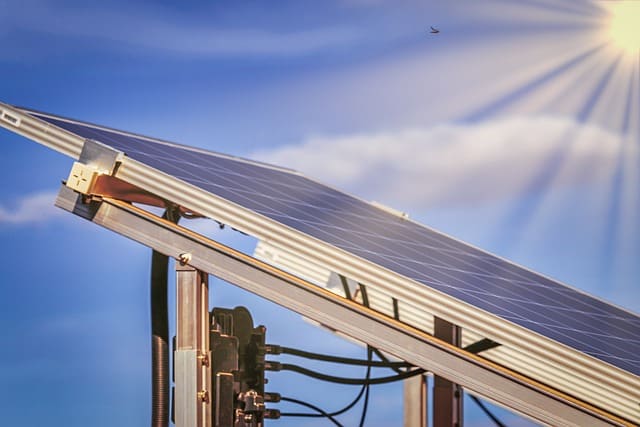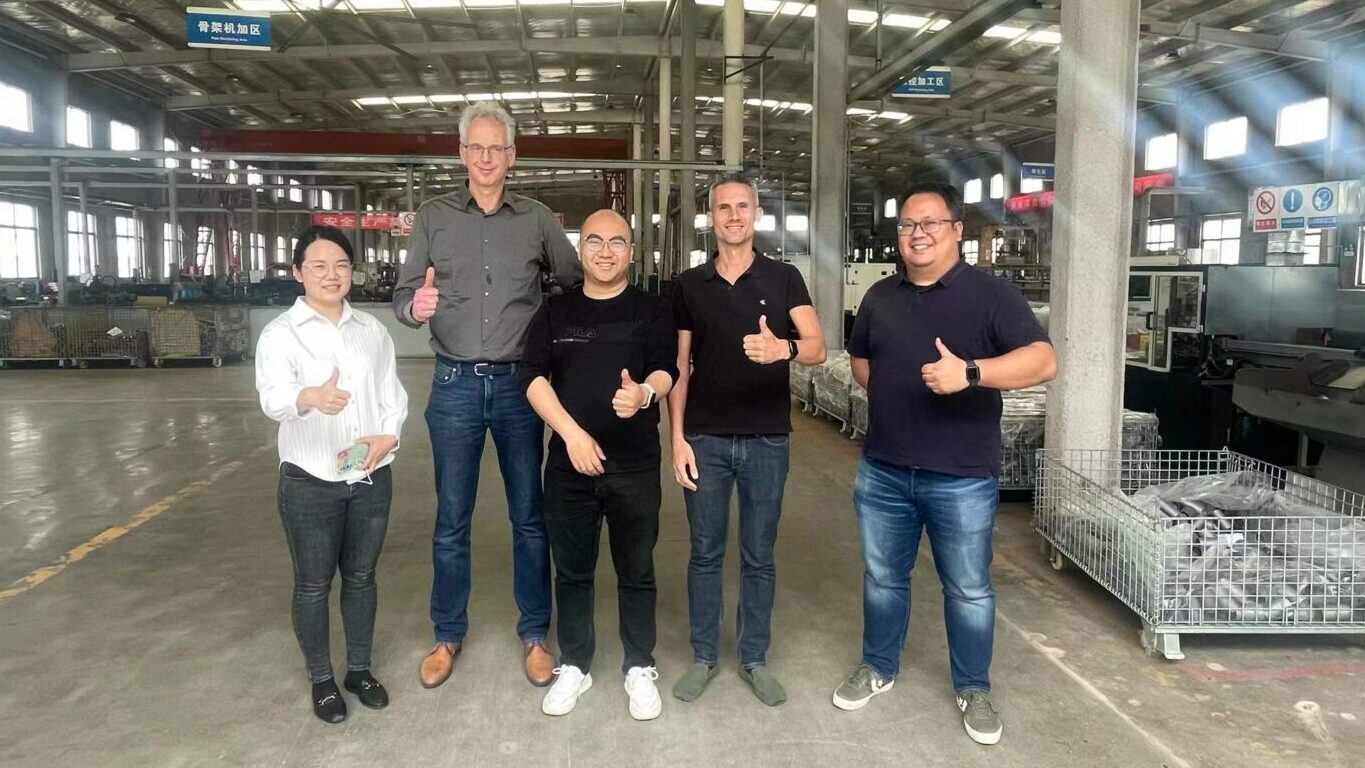Porque los tamaños de los paneles solares, composiciones, y las compensaciones varían, Es importante saber cuántos paneles solares necesita para maximizar el retorno de la inversión.. En este articulo, Le ayudaremos a comprender el tamaño de sus paneles solares., los paneles solares, y si su techo puede soportar un sistema de paneles solares que genere suficiente potencia para satisfacer las necesidades energéticas diarias de su hogar..

¿Qué tamaño tiene un panel solar??
Los paneles solares vienen en una variedad de configuraciones y tamaños., y para paneles solares residenciales, El tamaño del panel es de aproximadamente 66 por 40 pulgadas, que puede variar según la marca.
Dimensiones de los paneles solares de los tres tipos comunes de paneles
Los paneles solares vienen en tres tamaños principales.: 60, 72 y 96.
60 paneles solares
El tamaño estándar del panel solar es 60 células, la estructura es 6 incógnita 10 red, y el tamaño es 3.25 pies x 5.5 pies.
72 paneles solares
El 72 Los paneles solares miden un promedio de 3.25 pies x 6.42 pies y están dispuestos en una 6 incógnita 12 red, casi un pie más alto que el 60 paneles de tamaño estándar. Debido al gran tamaño del 72 paneles solares, normalmente requieren dos personas para instalar.
96 paneles solares
El 96 El panel de la unidad tiene un 8 incógnita 12 estructura de grilla y medidas 41.5 pies x 62.6 pies.
Tamaño estándar del panel solar
Las dos configuraciones comunes de células solares estándar para instalaciones comerciales y residenciales son: 60 células y 72 células. porque el 96 medida de las células 17.5 pies cuadrados, Este es un desafío para instalar en el techo..
Una sola célula solar es un cuadrado de 6×6 con 60 paneles dispuestos en una cuadrícula de 6×10 y 72 paneles dispuestos en una cuadrícula de 6×12.
Tabla de tamaños de paneles solares
| Configuración | Ancho | Altura | Profundidad |
| 60-celúla | 39" | 66" | 1.3-1.6" |
| 72-celúla | 36" | 77" | 1.3-1.6" |
| 96-celúla | 41.5" | 62.6" | 1.38" |

¿Cuánto pesan los paneles solares??
Así como cada tipo de panel solar tiene diferentes tamaños, También tienen diferentes pesos.. Los paneles de tamaño completo normalmente pesan entre 40 y 60 libras, añadiendo sobre 2.8 libras por pie cuadrado en un techo inclinado y aproximadamente 5 libras por pie cuadrado en un techo plano.
Factores que afectan el tamaño y el peso del panel solar
Los paneles pueden variar en tamaño y peso según el producto del proveedor.. Éstos son algunos de los factores que contribuyen:
Necesidades energéticas: El tamaño de su sistema solar se adapta a su consumo de energía, y cuanta más electricidad necesitas, cuanto más grande y pesado será su sistema solar.
Eficiencia del panel: Algunos paneles producen más energía en un área más pequeña, lo que significa que el tamaño y el peso total de un sistema de paneles más eficiente es menor.
Materiales: Los paneles solares suelen estar hechos de silicio., pero también hay baterías de película delgada, e incluso materiales orgánicos. En breve, El tipo de panel que elija afectará el tamaño y el peso de su panel solar..
¿Cuánta área necesita para instalar paneles solares??
El espacio exacto depende de tu casa., Aquí hay algunos ejemplos de tamaños del sistema solar para darle una idea.:
| Número de paneles | Tamaño del panel | Área de techo necesaria | |
| Pequeño sistema | 15 | 15 pies cuadrados cada uno | 225 pies cuadrados |
| Sistema medio | 25 | 15 pies cuadrados cada uno | 375 pies cuadrados |
| Sistema grande | 35 | 15 pies cuadrados cada uno | 525 pies cuadrados |
Tenga en cuenta que estos números reflejan un espacio ininterrumpido en el techo.. Cualquier chimenea, respiraderos, u otras características del techo pueden ocupar el espacio disponible en el panel.
Fórmula de cálculo de energía solar
La mayoría de los paneles solares tienen una potencia de entre 250 y 400 vatios, y puede utilizar la fórmula de cálculo del sistema solar para evaluar el tamaño que debe tener su sistema solar.. Antes de calcular, debe consultar su factura de servicios públicos para ver cuánta energía utiliza en promedio cada mes y año.
Para ayudarle a comprender los cálculos., Hemos proporcionado un gráfico de ejemplo basado en un promedio de 320 vatios por panel solar:
| Ejemplos de paneles solares – (Calculado 320 vatios por panel solar) | ||
| Tamaño del sistema (kilovatios) | Paneles requeridos | Producción anual promedio (kWh) |
| 6 | 19 | 9600 |
| 8 | 25 | 12800 |
| 10 | 32 | 16000 |
| 12 | 38 | 19200 |
| 14 | 44 | 22400 |
¿Por qué son importantes el tamaño y el peso del panel solar??
El tamaño y el peso de un sistema de paneles solares son los dos factores más importantes para determinar si la energía solar es adecuada para su hogar.. He aquí por qué son importantes:
- Instalación: Los paneles solares más grandes y pesados pueden requerir más soporte estructural durante la instalación, especialmente si están montados en un techo u otra estructura. Los instaladores deben asegurarse de que el sistema de montaje pueda soportar de forma segura el peso y el tamaño de los paneles..
- Transporte: Los paneles solares más grandes y pesados pueden ser más difíciles de transportar, especialmente si necesitan ser transportados a áreas distantes o remotas. Esto podría afectar el costo general y la logística de un proyecto de instalación solar..
- Requisitos de espacio: El tamaño del panel solar afecta directamente la cantidad de espacio necesario para su instalación.. En algunos casos, si el espacio es limitado o el área de instalación es limitada, puede ser preferible un panel más pequeño.
- Estética: El tamaño y la apariencia de los paneles solares también afectan la belleza visual de la propiedad.. En algunos ambientes, como distritos residenciales o históricos, las personas pueden preferir paneles más pequeños o más discretos para reducir su impacto visual.
- Eficiencia: Paneles más grandes no siempre significan más eficiencia. Si bien los paneles más grandes pueden potencialmente capturar más luz solar, otros factores, como la tecnología, diseño y orientación de los paneles, También juegan un papel importante en la determinación de la eficiencia general..
Conclusión
Los instaladores solares están acostumbrados a personalizar los diseños de sus sistemas para satisfacer las necesidades específicas de cada propiedad.. Sin embargo, Si estás pensando en instalar paneles solares en tu tejado, encontrar un instalador adecuado para su hogar puede requerir un poco de compras. Quizás quieras considerar contactando con GYCX Solar para solicitar y comparar múltiples ofertas de instaladores cerca de usted. GYCX Solar se compromete a brindar a los clientes un conjunto completo de soluciones de sistemas solares. Nuestro equipo profesional adaptará la solución solar a sus necesidades y condiciones del sitio..

Preguntas más frecuentes
¿Cuál es el mejor tamaño para los paneles solares??
Depende de cuanto espacio tengas disponible, la mayor parte del tiempo. paneles solares con 60 a 72 Las celdas son una buena opción para propiedades residenciales y pequeñas ubicaciones comerciales., y opciones más grandes son 96 células.
¿Con qué pueden funcionar los paneles solares de 100 W??
100Los paneles solares W son ideales para dispositivos pequeños como cargadores de teléfonos, portátiles, luces del salón e incluso electrodomésticos en autocaravanas. No es adecuado para el funcionamiento de electrodomésticos grandes., pero es una buena opción para la energía móvil..
¿Con qué pueden funcionar los paneles solares de 300 W??
Los paneles solares de 300W son suficientes para satisfacer las necesidades de la mayoría de los pequeños electrodomésticos., como una licuadora o tostadora, y también pueden alimentar cintas de correr, refrigeradores pequeños y aspiradoras.
¿Con qué pueden funcionar los paneles solares de 400 W??
400Los paneles solares W proporcionan suficiente energía para ayudar con una variedad de tareas, como aire acondicionado, refrigeradores medianos, y artículos como lavavajillas, y a menudo también pueden ejecutar computadoras de escritorio. Lo que puede funcionar con un panel solar de este tamaño depende de las necesidades energéticas específicas del dispositivo que intenta alimentar..
¿Qué tamaño tiene un panel solar de 500 W??
Un panel solar de 500W mide aproximadamente 27.5 pies cuadrados, que es un panel bastante grande, y proporciona una amplia gama de soluciones de energía para su hogar., capaz de alimentar la mayoría de los dispositivos electrónicos de su hogar.
